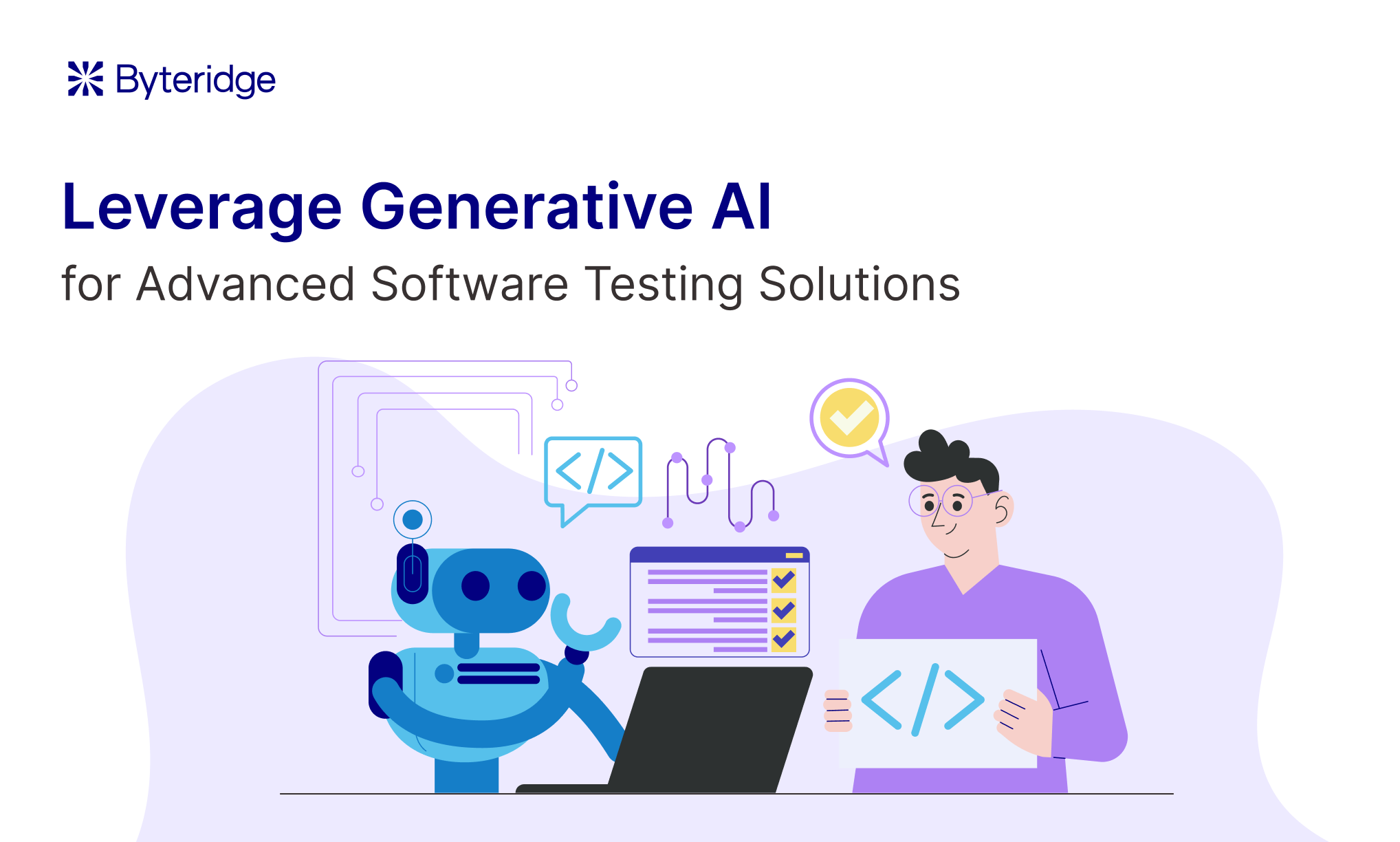Table of Contents
Introduction
Generative AI is transforming industries, and Software Quality Assurance (QA) is no exception. By integrating generative AI, QA teams can enhance their processes—from test case generation to creating fully automated testing solutions. Generative AI tools analyse patterns, convert requirements into structured assets, and generate code, accelerating testing and improving coverage. This blog explores how generative AI can be harnessed in QA and reviews some open-source tools available today.
The Role of Generative AI in Modern QA
Generative AI models assist QA teams in automating labour-intensive tasks, including:
- Automating test generation to reduce manual effort in creating test cases.
- Generating test data and edge cases by interpreting user requirements.
- Automating test scripts and facilitating maintenance, allowing teams to focus on exploratory testing
Generative AI’s language processing capabilities enable it to transform user stories or requirements into actionable test assets, revolutionizing the traditional QA workflow and reducing human error.
Generating Test Cases with Generative AI
Generative AI helps streamline test case creation by converting requirements into structured test cases:
- Requirement Analysis and Test Case Generation: By inputting user stories or functional descriptions, QA teams can use generative AI to automatically generate functional, boundary, and negative test cases.
- Diverse Scenario-Based Test Cases: Generative AI tools can create multiple scenarios based on a single input, giving teams broader test coverage.
Example Prompt: “Generate test cases for a login system that requires a username and password and includes ‘Forgot Password’ and ‘Remember Me’ functionalities.” The AI tool produces test cases, covering all relevant scenarios and reducing the need for manual scripting.
Test Data Generation
Generative AI can simplify test data creation, generating diverse and realistic test data for testing purposes:
- Realistic Data Generation: Generative AI tools can produce test data for fields such as email addresses, names, or dates, enabling teams to generate data that aligns with real-world input.
- Edge Case Data for Robust Testing: By requesting edge cases, generative AI can supply data variations, such as long strings, special characters, and unusual date formats, ensuring comprehensive application testing.
Example Prompt: “Generate email addresses for testing,” or “Create names with special characters for boundary testing.” The AI model responds with varied data samples, which can be directly used in test cases.
Automated Test Script Generation
Generative AI aids in scripting automation for multiple frameworks, expediting script development:
- Multi-Language Scripting Support: Generative AI can generate automation scripts in languages like Python, Java, or JavaScript, compatible with frameworks like Selenium, Appium, and Cypress.
- Reusable Script Templates: With generative AI, teams can quickly generate templates for common tests, such as login verification or form submission, and customize them as needed.
Example Prompt: “Create a Python script using Selenium to test website login functionality.” Generative AI generates a script to perform the login test, which can be easily integrated into an automation framework.
Enhancing Test Coverage for Exploratory Testing
Exploratory testing benefits from generative AI’s ability to produce creative and comprehensive test scenarios:
- Suggesting Unique Test Scenarios: Generative AI can recommend scenarios beyond typical user behaviours, identifying critical but uncommon user paths or unusual system states.
- Test Case Variations for Comprehensive Coverage: By creating alternative scenarios for existing test cases, generative AI helps achieve maximum test coverage and accuracy.
Example Prompt: “Suggest exploratory test cases for an e-commerce shopping cart.” Generative AI might generate scenarios involving abandoned carts, quantity limits, or promo codes, ensuring thorough testing across all user scenarios.
Test Case Maintenance with Self-Healing Capabilities
Generative AI also supports maintenance by recommending alternative locators and troubleshooting:
- Locator Strategy Adjustments: When UI elements change, generative AI can suggest stable locators, such as CSS selectors or XPath, minimizing flaky tests.
- Troubleshooting and Debugging Suggestions: Generative AI can analyze common errors, recommending solutions and improving test stability.
Example Prompt: “Suggest stable locators for a ‘Submit’ button that appears on multiple pages.” Generative AI proposes locator strategies that reduce test flakiness and boost maintenance efficiency.
Challenges and Considerations in Generative AI for QA
While generative AI offers many advantages, it’s important to consider a few factors:
- Data Privacy: To ensure data privacy, avoid sharing sensitive data in prompts. Generative AI should only process anonymized data to maintain privacy compliance.
- Accuracy and Context: Generative AI generates results based on input context, so QA engineers should provide detailed prompts to avoid misunderstandings or incomplete outputs.
- Human Validation: While generative AI offers strong support, human oversight remains crucial to ensure that outputs align with application functionality.
Generative AI Tools for QA
Various open-source tools are available for integrating generative AI into QA workflows:
- Hugging Face Transformers: A robust library with models for language generation, including test data and test case generation.
- GPT-J: An open-source alternative to ChatGPT, this model can be deployed locally for secure in-house test generation.
- Open Assistant: Designed for various natural language tasks, Open Assistant can generate test cases and provide exploratory test ideas.
- Cohere Generate: A language generation platform that provides custom model fine-tuning, ideal for tailoring test generation to specific QA needs.
These open-source tools offer flexibility and customization options, enabling QA teams to incorporate generative AI securely and effectively into their workflows.
The Future of Generative AI in Software QA
The potential of generative AI in QA will continue to grow, likely leading to more advanced applications:
- Enhanced Context Awareness: Future models will better understand nuanced user stories and requirements, generating even more relevant test cases.
- Predictive Testing: By analysing historical bug data, generative AI may suggest preventative test cases, reducing recurring issues.
- AI-Augmented Human Testers: Generative AI’s efficiency allows testers to focus on creative problem-solving, critical thinking, and user experience, while AI handles routine tasks.
Conclusion
Generative AI is transforming software QA by automating test case creation, test data generation, and even automated scripting. By leveraging AI-driven tools, QA teams can achieve high test coverage, rapid test case generation, and streamlined automation. As AI advances, its role in QA will expand, bringing faster, more accurate testing solutions and freeing QA professionals to focus on strategic and exploratory tasks that further enhance software quality.








